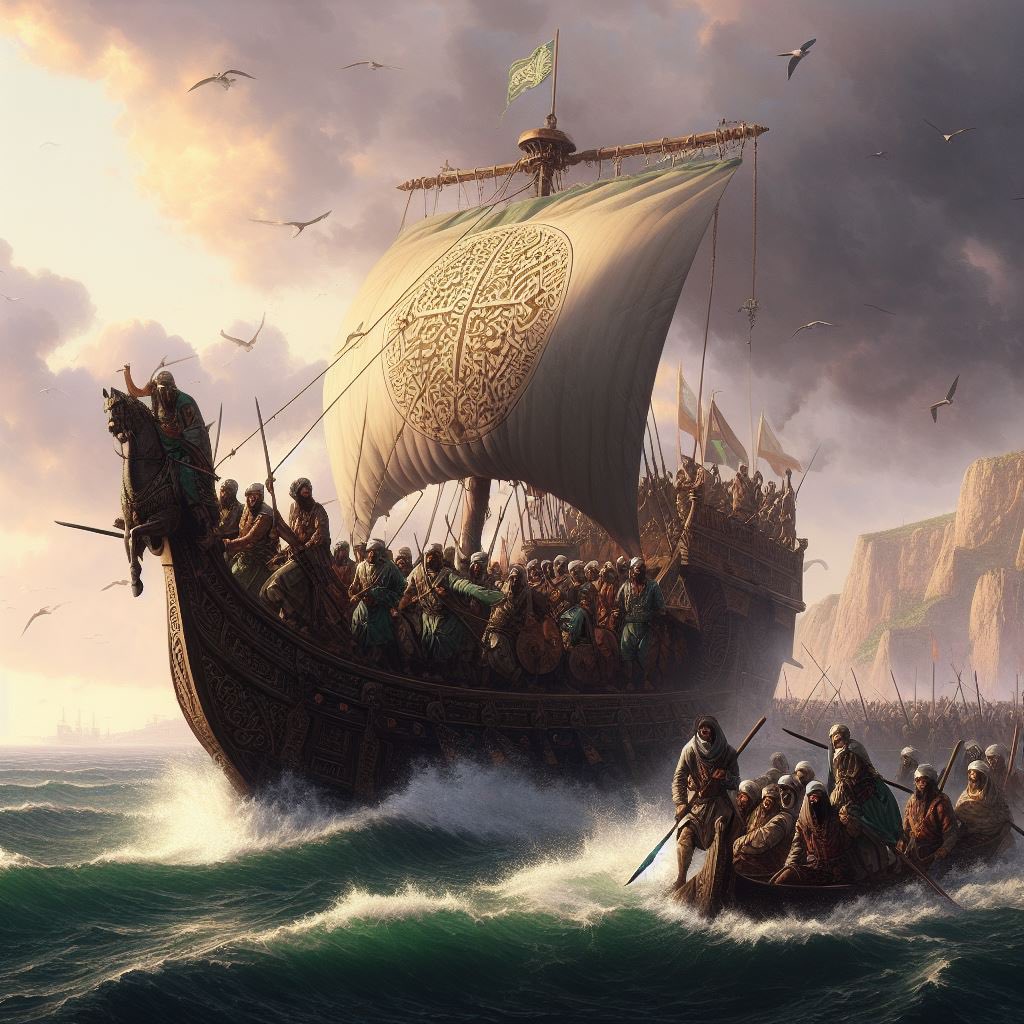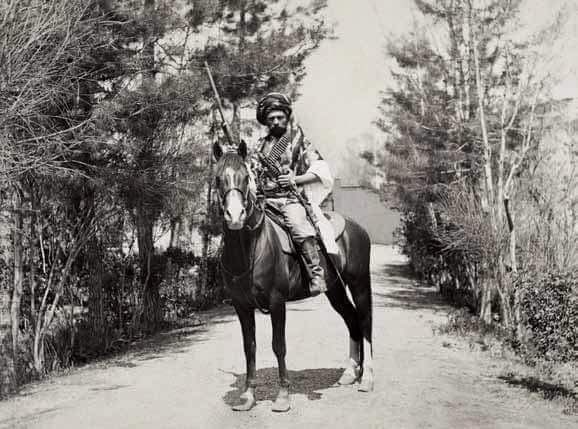🧵⚔️Political Figures⚔️🧵:
{The Speech that Changed History}
⚪️How Tariq ibn Ziyad Inspired His Soldiers to Conquer Spain⚪️
Tariq ibn Ziyad was a Berber Muslim general who led the invasion of the Iberian Peninsula in 711, marking the beginning of the Umayyad rule in Spain.
{The Speech that Changed History}
⚪️How Tariq ibn Ziyad Inspired His Soldiers to Conquer Spain⚪️
Tariq ibn Ziyad was a Berber Muslim general who led the invasion of the Iberian Peninsula in 711, marking the beginning of the Umayyad rule in Spain.

He is best known for his daring and decisive victory over the Visigothic king Roderic at the Battle of Guadalete, and for his famous speech to his soldiers before the battle, in which he burned his ships and urged them to fight for Islam and glory.
⚪️ The Context of the Speech⚪️
⚪️ The Context of the Speech⚪️
Tariq ibn Ziyad crossed the Strait of Gibraltar with an army of about 12,000 men, mostly Berbers, and landed at a rock that came to be known as Jabal Tariq, or Gibraltar in English.
He had been invited by some Christian dissidents who opposed the Visigothic king Roderic and wanted to overthrow him. However, he soon realized that he was facing a much larger and stronger enemy than he had expected. Roderic had mobilized an army of about 25,000 men, 

composed of Visigoths and their allies, and marched to confront Tariq at the river Guadalete near Jerez de la Frontera.
Tariq knew that he was outnumbered and outmatched by the Visigoths, who had a reputation for being fierce warriors and skilled horsemen.
Tariq knew that he was outnumbered and outmatched by the Visigoths, who had a reputation for being fierce warriors and skilled horsemen.
He also knew that he had no way of retreating or receiving reinforcements from Africa. He had only one option: to fight and win or die trying. He decided to make a bold and dramatic gesture to show his determination and to motivate his soldiers. He ordered his ships to be burned, 

leaving no possibility of escape. He then gathered his men and delivered one of the most inspiring speeches in history.
⚪️The Content of the Speech⚪️
Tariq ibn Ziyad's speech was a masterpiece of rhetoric and persuasion.
⚪️The Content of the Speech⚪️
Tariq ibn Ziyad's speech was a masterpiece of rhetoric and persuasion.
He used various techniques to appeal to his soldiers' emotions, logic, and values. He addressed them as "my warriors", creating a sense of camaraderie and loyalty. He asked them rhetorical questions, such as "whither would you flee?" and
"do not believe that I desire to incite you to face dangers which I shall refuse to share with you", challenging them to face their fears and doubts. He used vivid imagery and contrast, such as "behind you is the sea, before you, the enemy" and 

"you are more unfortunate than the orphan seated at the table of the avaricious master", highlighting their desperate situation and their need for action. He used repetition and parallelism, such as "remember that" and "do not imagine that",
emphasizing his main points and creating a rhythm in his speech. He used incentives and promises, such as "you will afterward enjoy supreme delight" and "the spoils will belong to yourselves", arousing their desire for reward and pleasure. He used religious references,
such as "the word of God" and "the true religion", invoking their faith and duty. He used authority and credibility, such as "the Commander of True Believers" and "he has chosen you for this attack from among all his Arab warriors", appealing to their respect and pride. 

Tariq ibn Ziyad's speech was also a reflection of his personality and character. He showed his courage and confidence, saying "in the attack I myself will be in the fore, where the chance of life is always least". He showed his solidarity and commitment, saying
"rest assured that if you fall, I shall perish with you, or avenge you". He showed his wisdom and strategy, saying "if you delay to seize immediate success, your good fortune will vanish". He showed his ambition and vision, saying "such is his confidence in your intrepidity" and
"the one fruit which he desires to obtain from your bravery is that the word of God shall be exalted in this country".
⚪️The Impact of the Speech⚪️
Tariq ibn Ziyad's speech had a powerful impact on his soldiers. It filled them with courage, enthusiasm, and determination.
⚪️The Impact of the Speech⚪️
Tariq ibn Ziyad's speech had a powerful impact on his soldiers. It filled them with courage, enthusiasm, and determination.
It made them forget their fears, doubts, and hardships. It made them ready to fight for their cause, their leader, and their destiny. It made them willing to sacrifice their lives for the sake of Islam and glory.
The speech also had a historical impact on the outcome of the battle and the fate of Spain. The Battle of Guadalete was fought on July 19, 711, and lasted for several days. The Visigoths outnumbered the Muslims, but they were divided by internal rivalries 

@threadreaderapp unroll
• • •
Missing some Tweet in this thread? You can try to
force a refresh

 Read on Twitter
Read on Twitter











